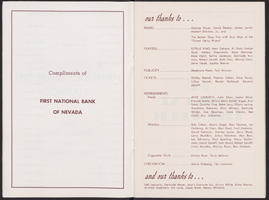Search the Special Collections and Archives Portal
Search Results
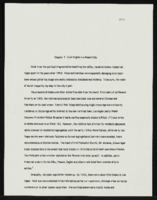
"Chapter 7: Civil Rights in a Resort City": manuscript by Roosevelt Fitzgerald
Date
Archival Collection
Description
From the Roosevelt Fitzgerald Professional Papers (MS-01082) -- Unpublished manuscripts file. Pages 274 -313 of unknown manuscript.
Text
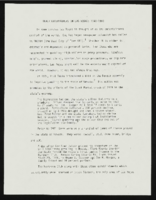
"Black Entertainers in Las Vegas in the Era of Segregation 1940-1960": manuscript draft by Roosevelt Fitzgerald
Date
Archival Collection
Description
From the Roosevelt Fitzgerald Professional Papers (MS-01082) -- Unpublished manuscripts file.
Text
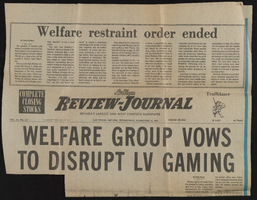
Ffolliott "Fluff" LeCoque Papers
Identifier
Abstract
Collection is comprised of Ffolliott "Fluff" LeCoque's professional and personal papers (1879-2015), documenting her life and career working as a dancer and later as company manager for Las Vegas entertainment productions; most notably the long-running Jubilee! show produced by Donn Arden for the MGM Grand and Bally's Hotel-Casinos. Materials include personal letters, drawings, professional papers, newspaper clippings, photographs, magazines, commericially produced sheet music, and related ephemera.
Archival Collection
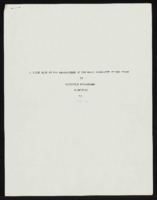
"A Brief Look of the Development of the Black Community of Las Vegas": manuscript draft by Roosevelt Fitzgerald
Date
Archival Collection
Description
From the Roosevelt Fitzgerald Professional Papers (MS-01082) -- Unpublished manuscripts file.
Text
Transcript of interview with Hank Greenspun by Tony Bleeker, 1975
Date
Archival Collection
Description
Brief interview with Hank Greenspun by student Tony Bleeker. Greenspun speaks about changes in southern Nevada over the years, including politics, gaming and the economy. He mentions the role of the newspaper industry to provide "balance" in society.
No release form is on file for this interview. The interview is accessible onsite only, and researchers must seek permission from the interviewee or heirs for quotation, reproduction, or publication. Please contact special.collections@unlv.edu for further information.
Text
Irwin and Susan Molasky Papers
Identifier
Abstract
The Irwin and Susan Molasky Papers (early 1900s-2012, bulk 1970-2012) primarily contain materials related to real estate development work by Irwin Molasky with his company, the Molasky Group of Companies, in Las Vegas, Nevada. In addition, the collection includes personal photographs (early 1900s-2011, bulk 1970-2011) of family members, friends, and events, as well as a Proclamation from Clark County, Nevada to establish the Molasky Family Park.
Archival Collection

Transcript of interview with Phillip L. Cook by Richrad Strahan, March 3, 1977
Date
Archival Collection
Description
On March 3, 1977, Richard Strahan interviewed Phillip L. Cook (born 1939 in Las Vegas, Nevada) about his life in Southern Nevada. Cook first talks about his parents’ move to Nevada and then describes how the school system has changed over time. He then describes the first businesses that opened up in the Downtown and Strip areas in Las Vegas before discussing prostitution, Block 16, and recreational activities available to youth. Cook also talks about the first television sets and telephone systems made available, and he moves on to talk about the prices of things such as movies and haircuts when he was younger. The interview then moves to discussions on the Old Ranch, racial discrimination, school integration, the crime rate, and the school system in Las Vegas.
Text

Transcript of interview with James Bonnell by Gerald L. Conner, February 22, 1977
Date
Archival Collection
Description
On February 22, 1977, James Bonnell interviewed Gerald L. Connor (born 1930 in Boston, Massachusetts) about his experiences in Nevada and his work in education. Connor first talks about his move to Nevada while he was a member of the United States Air Force. He then discusses his education, including that at the University of Nevada, Las Vegas, and also describes his church membership. Connor later talks about changes in the schools and school district, the growth of gambling and properties located in Downtown Las Vegas and the Las Vegas Strip, and the early atomic tests at the Nevada Test Site. He also describes in detail his political activity and involvement with the Democratic Party, including his work with candidates for the offices of Nevada Governor and United States Senator. Towards the end of the interview, Connor talks about events such as Helldorado, the growth of the city over time, and his thoughts on the future of Las Vegas.
Text

